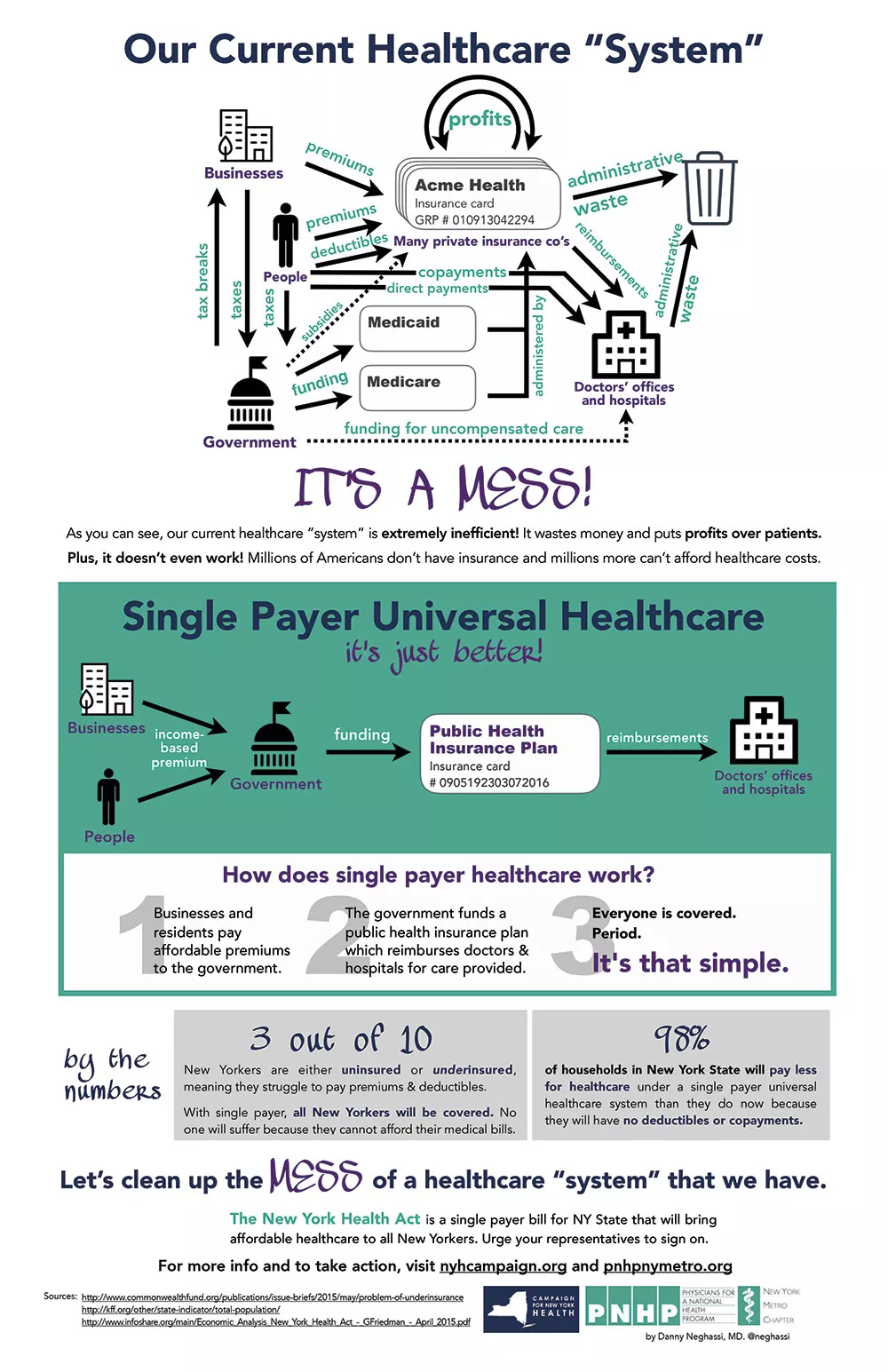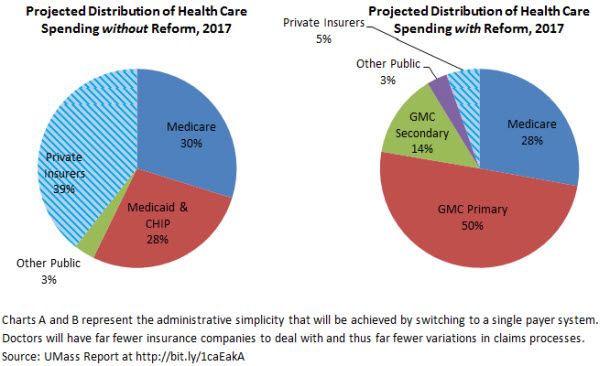Since Might, Medicaid registration nationally was 73. 5 million. The administration's choice to broaden the " public charge" rule, which would enable federal immigration authorities to more easily deny permanent residency status to those who depend on particular public advantages, such as Medicaid, has discouraged many individuals from looking for Medicaid, stated Judith Solomon, senior fellow with the Center on Budget Plan and Policy Priorities, a research group based in Washington, D.C.
However not all his propositions would assist the senior citizens who depend on it. For example, invalidating the Affordable Care Act would eliminate new preventive benefits for Medicare enrollees and reopen the notorious "doughnut hole" that topics numerous seniors to large out-of-pocket costs for prescription drugs, even if they have insurance.
And his budget plan for fiscal 2021 proposed Medicare cuts amounting to $450 billion. At the very same time, nevertheless, the administration executed policies significantly broadening payment for telehealth services as well as a kidney care effort for the countless clients who get approved for Medicare as a result of advanced kidney disease.
The issue usually happens when clients get care at health centers that are part of their insurance network however are dealt with by specialists who are not. Other sources of surprise billing include ambulance business and emergency space physicians and anesthesiologists, amongst other specializeds. An effort to end the practice stalled in Congress as some market groups pushed back against legal proposals.
" At the end of the day, plenty of people in Congress did not truly desire to get something done," he stated. Taking a different path, the administration finalized a rule last November that needs health centers to supply cost info to customers. The guideline will work Jan. 1. A federal judge shot down an effort by health centers to block the guideline, although appeals are expected.
" Arguably, the No. 1 issue with surprise bills is that individuals have no idea what costs are prior to they receive care," he said. But Adler stated the rule would have a "extremely minor impact" because many consumers don't take a look at rates prior to deciding where to look for care especially during emergencies.
What Does When Is Health Care Vote https://writeablog.net/delodo1fzo/competent-care-generally-implies-24-hour-care-so-no-matter-whether-it-is Mean?
The number of opioid deaths has actually revealed a modest decline after a dramatic boost over the previous decade. Overall, overdose death rates fell by 4% from 2017 to 2018 in the United States. New CDC data shows that, over the exact same period, death rates including heroin also decreased by 4% and overdose death rates including prescription drugs reduced by 13.
The administration increased moneying to broaden treatment programs for individuals using heroin and broadened access to naloxone, a medication that can reverse an overdose, stated Dr. Georges Benjamin, executive director of the American Public Health Association. On the other hand, the nation's obesity epidemic is intensifying. Obesity, a threat factor for severe impacts of COVID-19, continues to end up being more common, according to the CDC.
However the pandemic has been the significant public health problem this administration has actually dealt with. "We were doing a sensible task attending to the opioid epidemic until COVID struck," Benjamin stated. "This reveals the fragility of our health system, that we can not manage these 3 upsurges at the same time." [Update: This story was upgraded on Sept.
m. why doesn't the us have universal health care. ET to include information about the administration's strategy to expand making use of health compensation arrangements and on Nov. 11 at 9:30 a. m. ET to repair the spelling of GoodRx.].
The American health care system in beset with inequalities that have a disproportionate effect on people of color and other marginalized groups. These inequalities add to gaps in health insurance coverage, unequal access to services, and poorer health results among particular populations. African Americans bear the brunt of these health care challenges.

4 percent of the U.S. population. Over the period of numerous decades, specifically because the Civil Rights Acts of 1964 and 1968, they have had the ability to make significant strides in American society. According to the Economic Policy Institute, academic achievement has greatly increased, with more than 90 percent of African Americans aged 2529 having actually finished from high school. College graduation rates have actually likewise improved among African Americans.
A Biased View of What Might Happen If The Federal Government Makes Cuts To Health Care Spending?
And when it comes to own a home, just Mental Health Facility over 40 percent of African Americans own a homea rate virtually unchanged considering that 1968. African Americans are also living longer, and the bulk of them have some type of medical insurance coverage. Nevertheless, African Americans still experience health problem and infirmity at exceptionally high rates and have lower life span than other racial and ethnic groups.
This report will analyze the state of healthcare protection for African Americans and shed a light on essential social factors that distinctively impact their health results. In an effort to draw ramifications from leading health care reform strategies, suggestions are produced the way forward in ensuring that the physiological and social effects of racism are not left out in efforts to protect truly Drug Abuse Treatment universal health care protection in America (what is health care policy).
Resolving their special difficulties and viewpoints, including the prevalent impacts of racism, need to be consisted of in health reform efforts. The Affordable Care Act (ACA) has helped to guarantee healthcare coverage for countless Americans. The uninsured rate among African Americans decreased after the law was implemented: of the more than 20 million individuals who have actually gotten coverage under the ACA, 2 (how much is health care).
7 percent, while it was simply 5. 4 percent amongst whites. African Americans were most likely to be covered through employer-sponsored or private medical insurance: 55 percent of African Americans utilized personal medical insurance in 2018, while 41. 2 percent were registered in Medicaid or some other kind of public health insurance coverage.
The average family spends $8,200 (or 11 percent of family income) each year on health care premiums, and out-of-pocket costs for things such as workplace see copays, prescription drugs, and surprise or out of strategy medical bills continue to ruin the monetary security of families. For African Americans, the average yearly cost for healthcare premiums is practically 20 percent of the average home incomea significant expense to bear, when taking into consideration earnings inequality and other economic difficulties for this market.

5 million people that still lack medical insurance protection, 45 percent mention cost as the factor for being uninsured. Additionally, the Commonwealth Fund approximates that an extra 87 million individuals (grownups aged 19 to 64) are underinsured; that is, they have coverage, but their strategy leads to unusually high out-of-pocket costs relative to earnings that can result in a stress on personal financial resources or even debt.
Facts About A Health Care Professional Is Caring For A Patient Who Is About To Begin Iron Dextran Revealed
The lack of Medicaid expansion in crucial states, health variations, and healthcare provider shortages make it extremely hard to attend to America's health care needs in a thorough method. And while these obstacles are factors that touch lots of Americans in different parts of the country, the gravity of them is distinctively seen in the South, and amongst the African-American population.